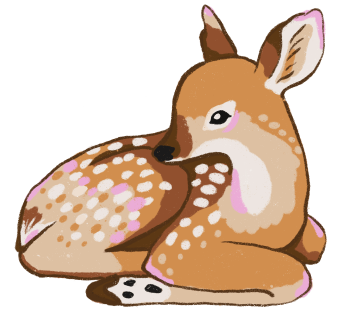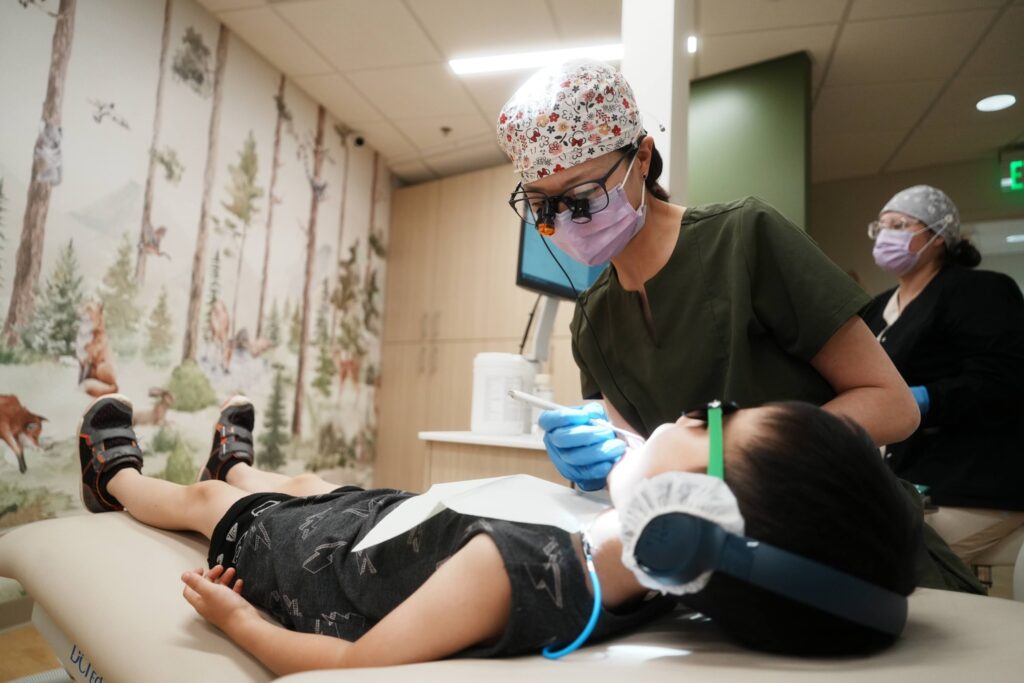Pulp Therapy

When tooth decay reaches the nerve of your child’s tooth, a pulpotomy or pulpectomy can save the affected tooth and prevent extraction. Often called a “baby root canal,” these gentle treatments relieve pain while preserving your child’s natural tooth until it’s ready to fall out naturally.
The Benefits of Pulp Therapy
Pulp therapy treats infected or damaged tooth nerves while preserving natural baby teeth until they’re ready to fall out. These treatments, often called “baby root canals,” stop pain and infection while maintaining proper spacing for permanent teeth.

Pain Relief
Gentle removal of infected nerve tissue eliminates tooth pain and prevents infection from spreading to surrounding teeth or bone structure.
Tooth Preservation
Keeping natural baby teeth in place maintains proper spacing and alignment, supporting normal development of permanent teeth underneath.
Normal Function
Treated teeth continue functioning normally for eating and speaking, with protective crowns ensuring durability until natural loss occurs.
Development Support
Preserving baby teeth helps guide permanent teeth into proper position and maintains jaw development throughout childhood.
Why Choose Us for Pulp Therapy?
Treating nerve damage in children’s teeth requires specialized pediatric expertise.
Advanced Techniques
Our pediatric dentists use modern methods that make treatment more comfortable and effective.
Gentle Approach
We ensure your child stays comfortable throughout the procedure using appropriate pain management.
Experienced Team
Our specialists have extensive training in pediatric pulp therapy procedures.
About Pulp Therapy
We offer two types of pulp therapy depending on your child’s specific needs:
- Pulpotomy: When decay affects only the top portion of the tooth’s nerve, we gently remove the damaged tissue while leaving the healthy root nerve intact. This treatment is often called a “baby tooth root canal” and helps maintain the tooth’s vitality.
- Pulpectomy: When infection reaches deeper into the tooth’s roots, we carefully clean the entire nerve channel and seal it with special material. This procedure saves severely damaged teeth that would otherwise require extraction.

Our Promise to You
We understand that terms like “root canal” can sound scary. Our team takes time to explain the process and ensure both you and your child feel confident about the treatment plan.

Save Your Child's Natural Tooth
Don’t wait until tooth pain becomes severe. Early treatment helps prevent complications and ensures the best possible outcome for your child’s dental health.
FAQs
Essential information about pediatric pulp therapy treatments.
What is a pulpotomy/pulpectomy?
These treatments address infection or damage to a tooth’s nerve (pulp). A pulpotomy removes damaged tissue from the crown while preserving healthy root tissue. A pulpectomy removes all nerve tissue when infection has spread to the roots.
How do I know if my child needs pulp therapy?
Signs may include severe tooth pain, sensitivity to temperature, swelling, or prolonged discomfort. Our examination will determine the most appropriate treatment.
Is pulp therapy painful?
No, we use appropriate numbing techniques to ensure your child remains comfortable throughout the procedure.
What happens after the treatment?
Most children return to normal activities immediately after treatment. The tooth may need a crown for protection, which we typically place during the same visit.
Why not just extract the tooth?
Saving natural baby teeth is important for proper spacing, speech development, and guiding permanent teeth into position.
How long does recovery take?
Most children experience little to no discomfort after treatment. Any mild soreness typically resolves within a day or two.
